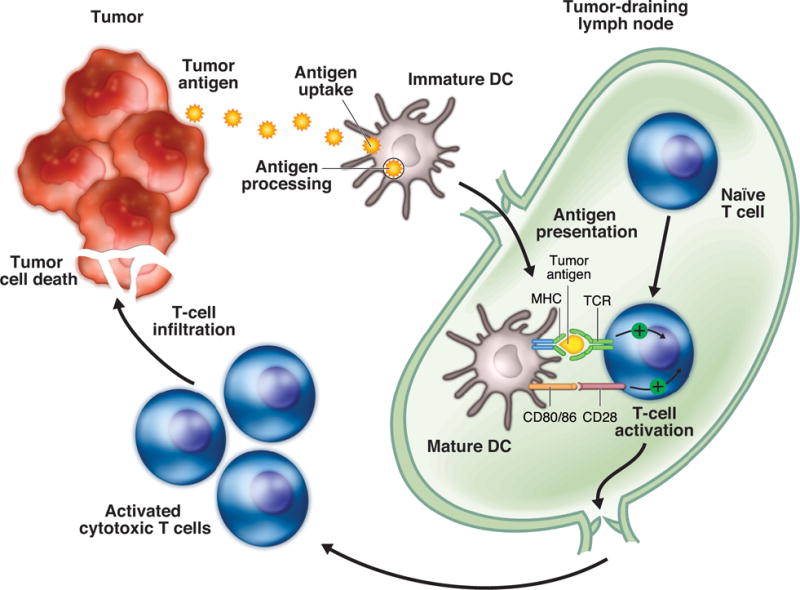FIGURE 1.

Adaptive anticancer immunity. The adaptive anticancer immune response is initiated by immature DCs, which capture and process tumor antigens. DCs subsequently undergo maturation and migrate to tumor-draining lymph nodes, where they present tumor antigens within MHC molecules to naïve T cells, triggering a protective T-cell response. T-cell activation requires interaction not only between the antigen-MHC complex on DCs and TCRs but also among an array of co-stimulatory molecules, including CD80/86 on DCs and the CD28 receptor on T cells. The adaptive anticancer immune response culminates with the infiltration of activated cytotoxic T cells into the tumor, killing cancer cells. DC, dendritic cell; MHC, major histocompatibility; TCR, T-cell receptor.
